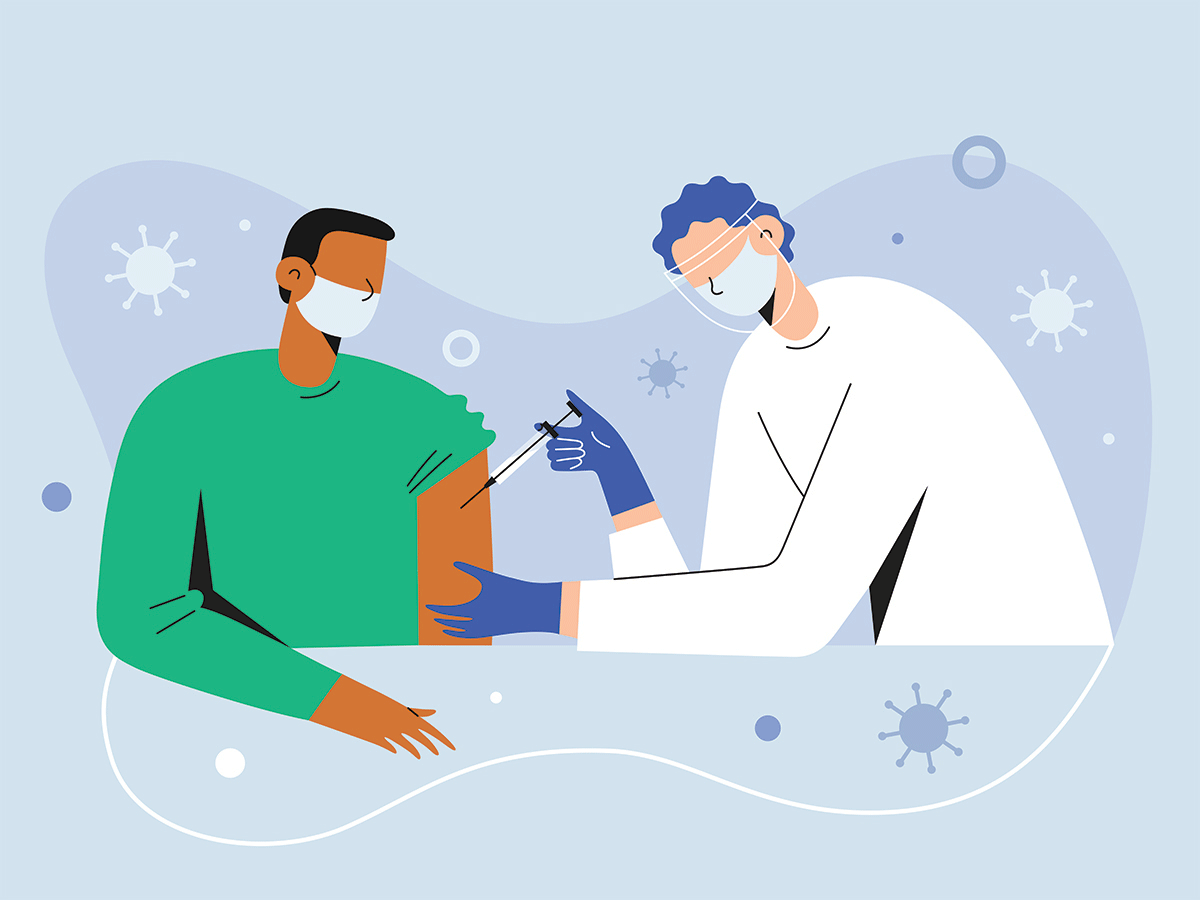Myocarditis and COVID Vaccines: What You Need to Know

Rare cases of myocarditis are being reported after COVID-19 vaccination—but many more cases are reported after COVID-19 infection.
On October 1, Health Canada released a statement about the reports of rare cases of myocarditis and pericarditis after immunization with mRNA COVID-19 vaccines in Canada and across the globe. Higher rates of these heart conditions have been reported among people who’ve contracted COVID-19.
Concern over the link between the COVID vaccines and myocarditis rose with a recent US study that found a higher risk of myocarditis and pericarditis after COVID vaccination, as well as a recent Canadian study that, due to a mathematical error, inaccurately suggested an extremely high rate of the heart conditions after COVID vaccinations. But as Christopher Labos, physician in Montreal writes in the Montreal Gazette, “the risks [of myocarditis] with the vaccine were not zero but were very small and far less than the risks associated with getting COVID-19.”
To learn more, we chatted with Earl Brown, emeritus professor, Faculty of Medicine, at the University of Ottawa.
(Related: Experts Advise Being ‘Super Safe’ as Canada Enters the 4th Wave of COVID)
What are myocarditis and pericarditis, exactly?
Myocarditisis is the inflammation of the heart muscle, and pericarditis is the inflammation of the membrane—the bag that surrounds the heart. About half a million people around the world die from myocarditisis every year, and it causes 20 percent of the sudden deaths in young people.
What causes myocarditis?
In the Western world, myocarditisis is mainly caused by a viral infection, and in the developing world, it’s mainly due to parasites.
A COVID infection can also cause myocarditisis. There are around 450 cases of myocarditisis per million infections of COVID-19. It can be due to either infection of the heart or stimulation of the immune system to attack the heart—which causes things like autoimmunity, where the immune system attacks some of the surrounding tissues.
With the mRNA vaccines, we’re seeing myocarditisis at the rate of around 67 cases per million. So to directly compare myocarditisis rates after the COVID-19 vaccine with the virus, you look at 67 versus 450 cases per million.
(Related: What You Need to Know About Blood Clots and COVID-19 Vaccines)
How do COVID vaccines affect the risk of these heart conditions?
When people develop myocarditis from the vaccine, it’s a milder form of the condition. The vaccines are believed to somehow be stimulating the immune system to attack the heart. There have been no reported deaths with myocarditis from the vaccine, and it tends to resolve on its own or with drug treatments. Steroids may be used to quiet the immune system, and immunoglobulin (IVIG) is often given to people who are suspected to have an infection. IVIG is basically a pool of antibodies from the donated blood of many people—a collection of their immunity.
People who get myocarditis from the mRNA vaccines resolve in a couple of days. They are sometimes hospitalized with those treatments, but they go home without damage.
Who is most impacted by these risks?
Young men in their teens and 20s are most likely to get myocarditis after the COVID vaccine. I’m not sure if there’s a men versus women difference in myocarditis due to COVID-19 disease, but women have a stronger immune system than men, and stronger immune responses, so that may help them survive the COVID-19 disease.
[Edmonton Oiler’s player Josh Archibald, 28 and unvaccinated, was recently put on leave after being diagnosed with myocarditis after contracting COVID-19.]
What are the symptoms to watch out for?
Often there’s chest pain—heart pain—and difficulty breathing, which require immediate medical attention.
After the COVID vaccine, myocarditis symptoms appear from three to four days to a couple of weeks. After contracting the COVID-19 virus, symptoms will appear within the first eight days.
This interview has been edited and condensed.
Now that you know about myocarditis and COVID vaccines: Could Protection from COVID Soon Be Available Through a Nasal Spray?




